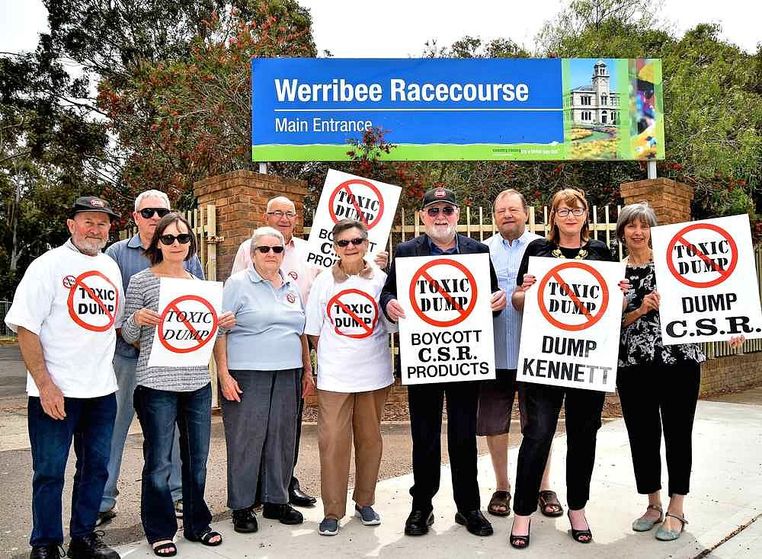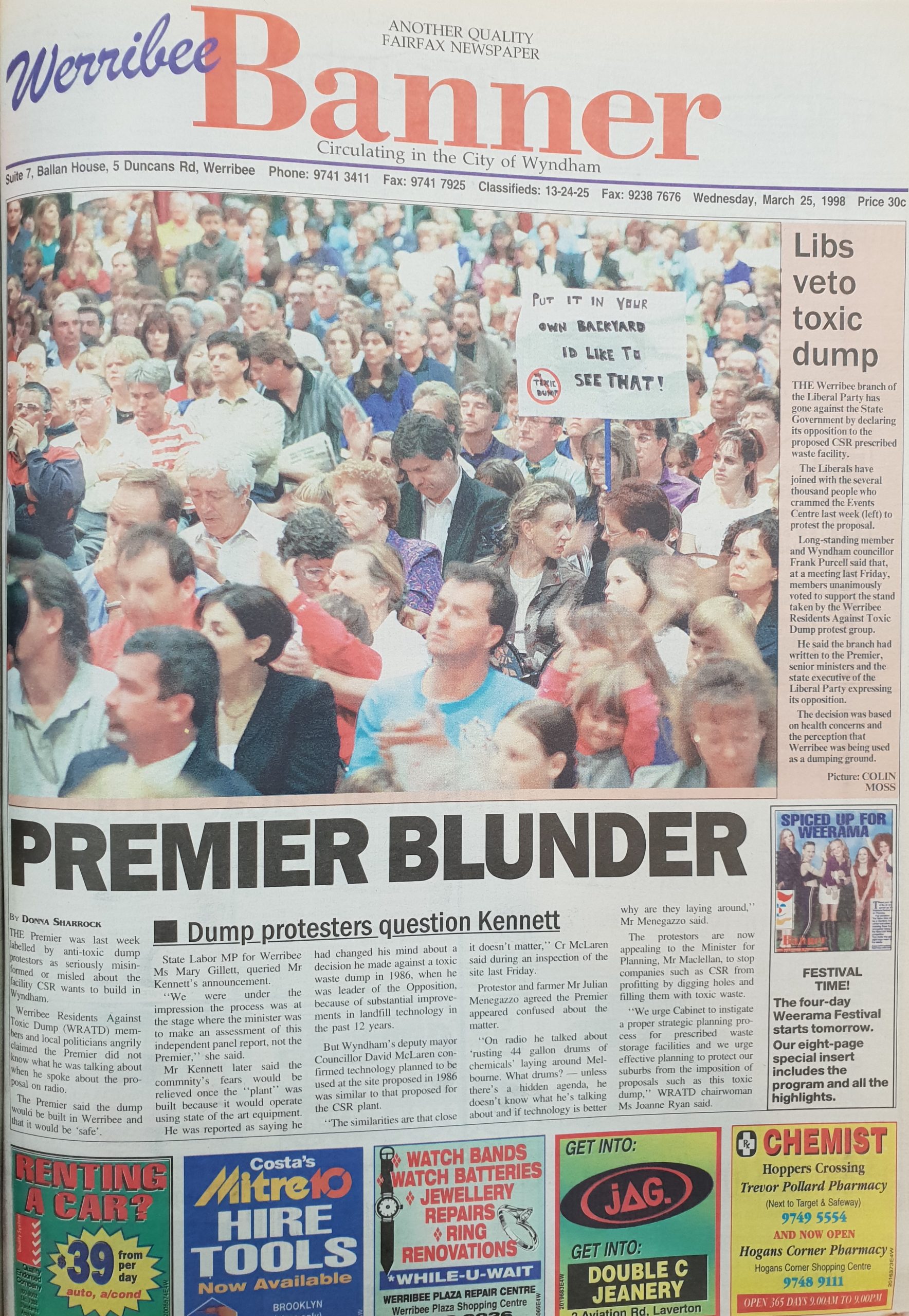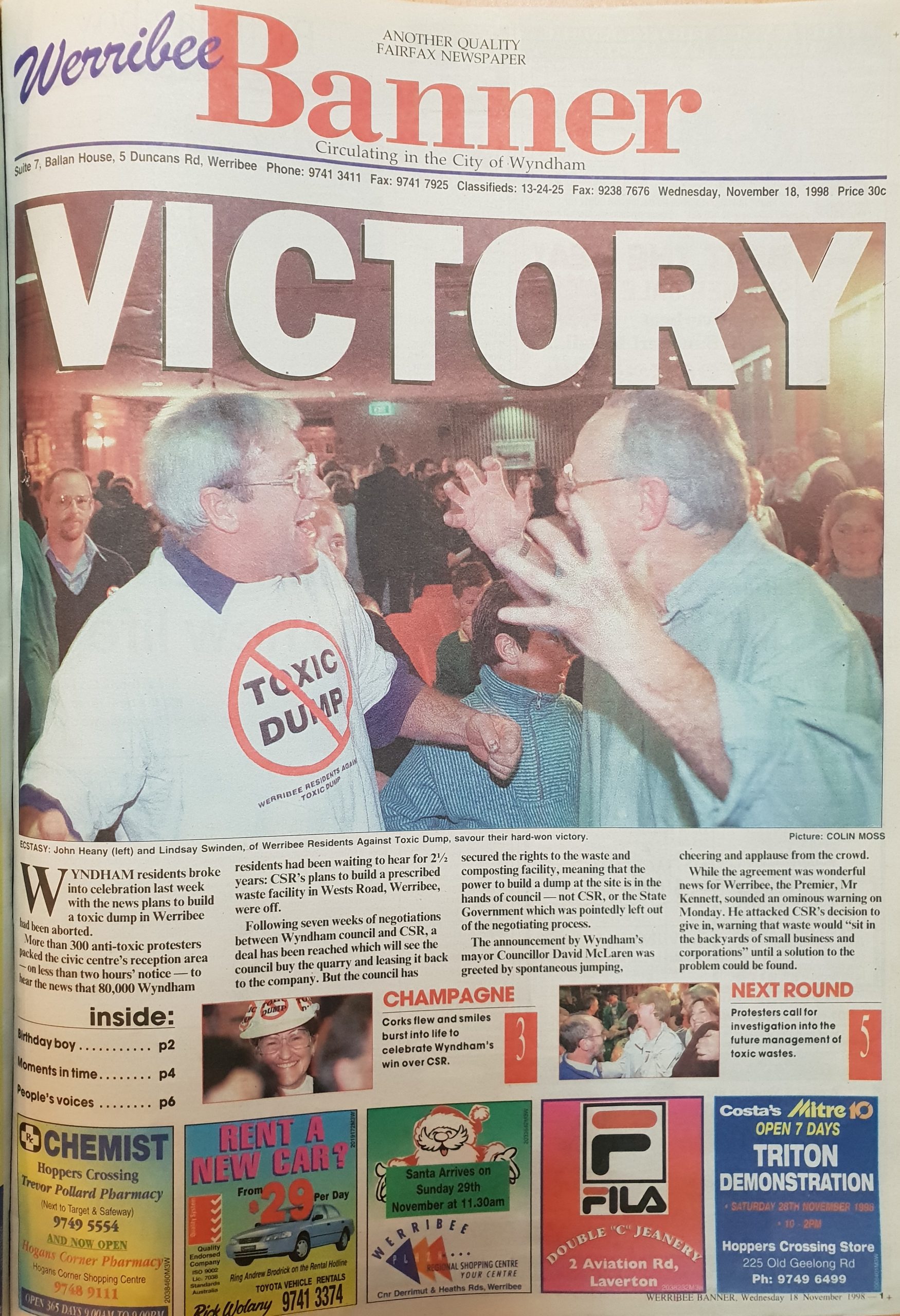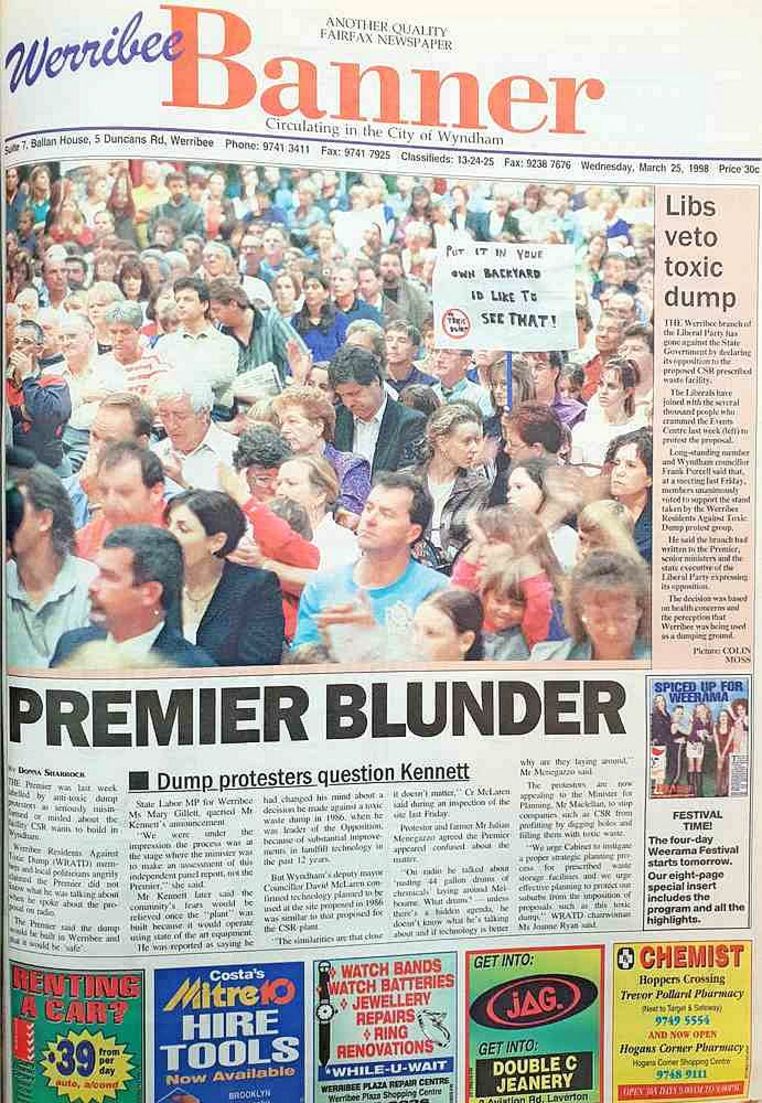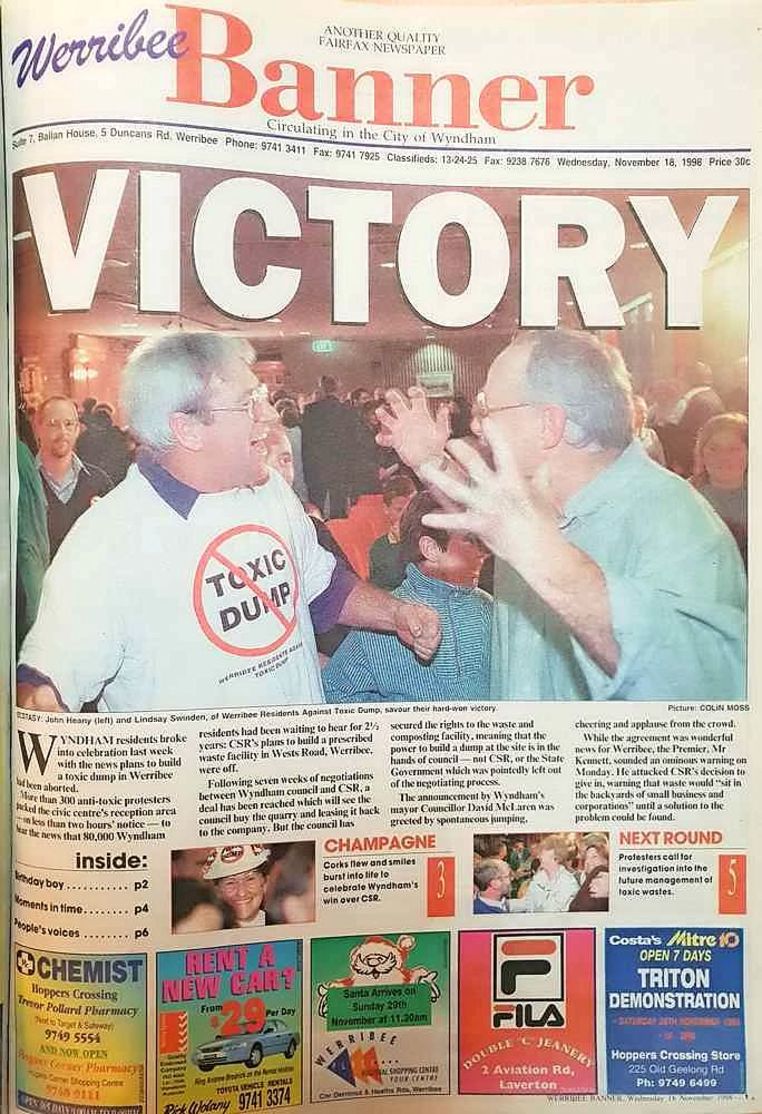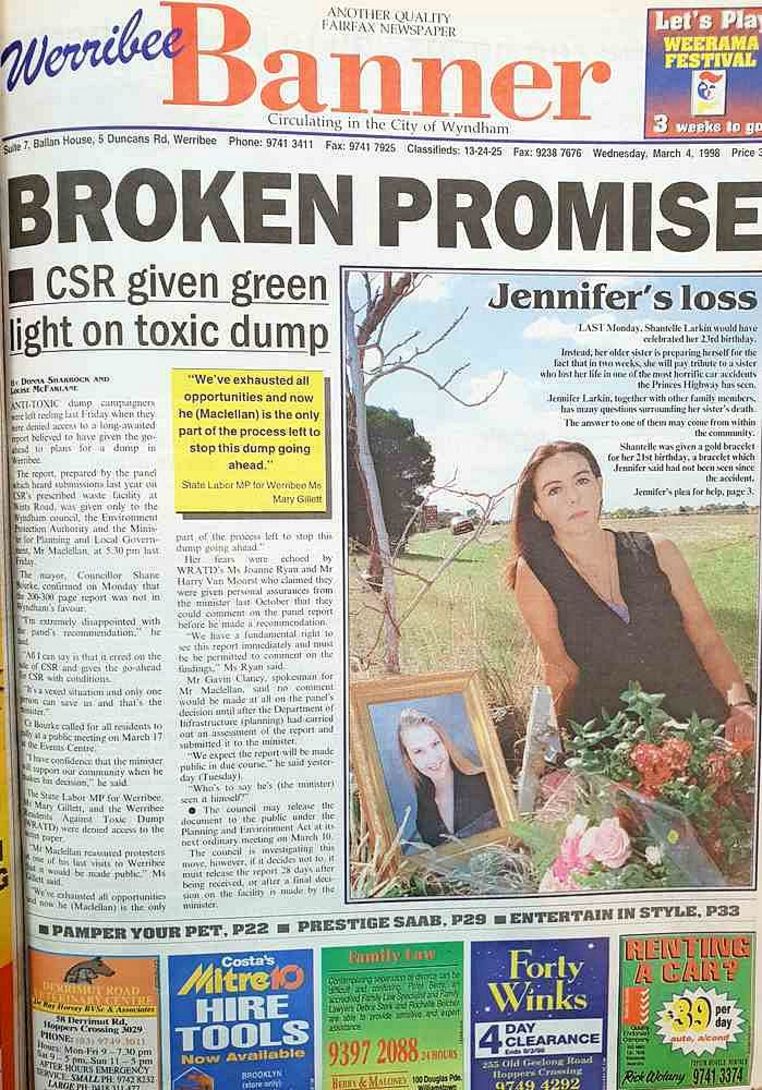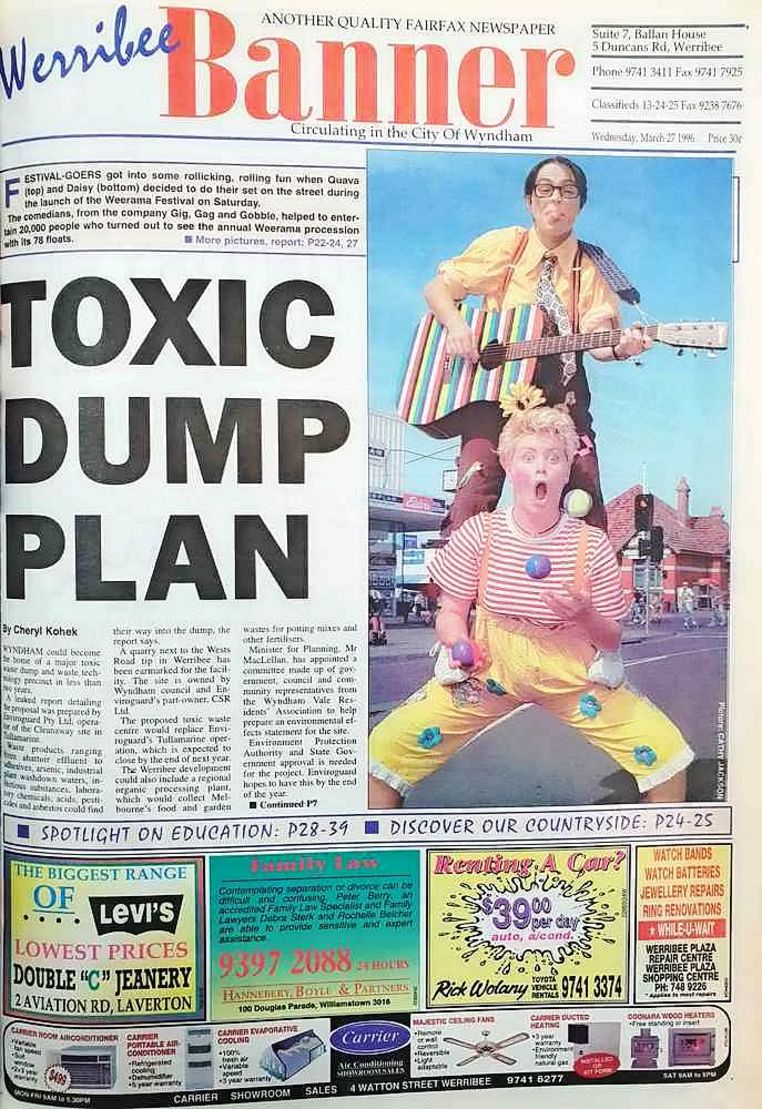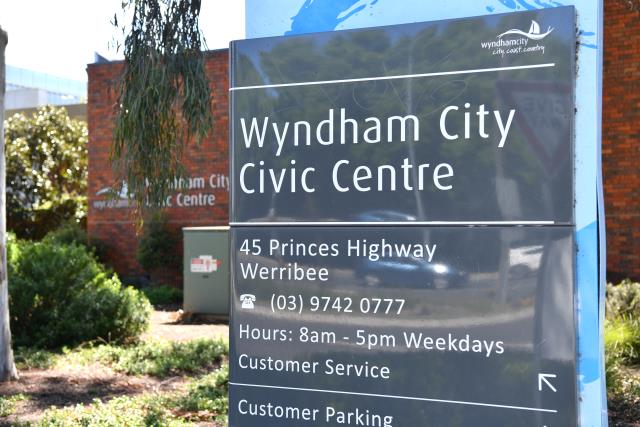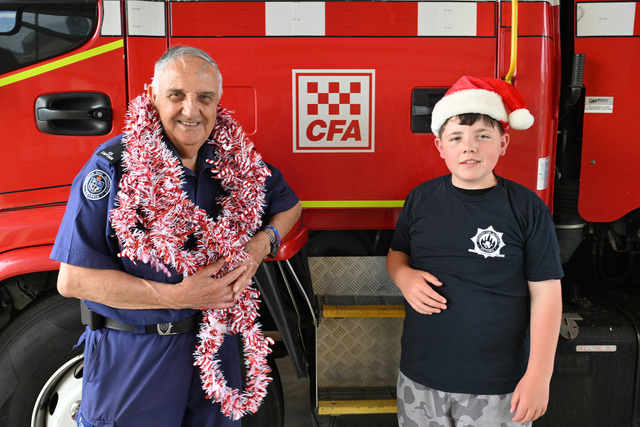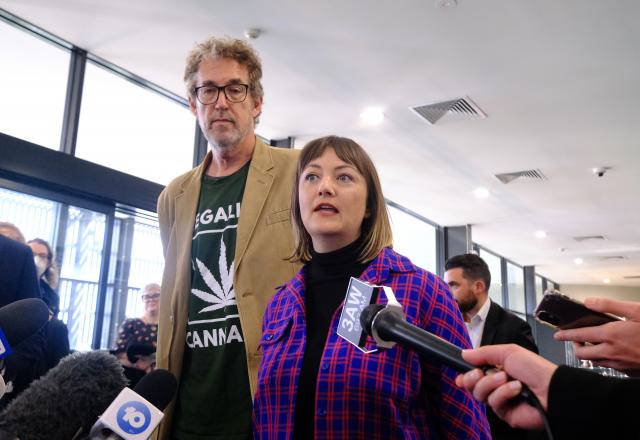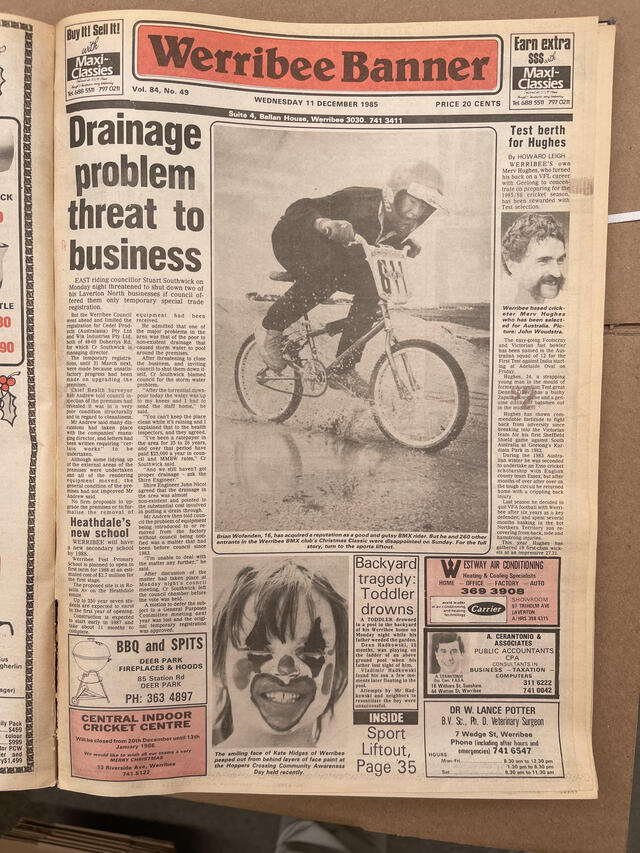In July 1995, CSR advised Wyndham commissioners of its plans for a toxic dump and waste management precinct for the quarry next door to the Wests Road tip.
What followed was a concerted three-year community campaign that resulted in CSR throwing in the towel and selling the quarry to Wyndham council following protracted pre-court negotiations.
November 13 was the 20th anniversary of that well-fought victory, and Werribee Residents Against Toxic Dumps member Harry van Moorst celebrated the milestone yesterday with a small dinner with some of the core activists of that campaign.
Mr van Moorst believes a 15,000-strong protest at Werribee Racecourse following the government’s May 1998 decision to approve the toxic dump – despite years of rampant community opposition – was the turning point for the whole campaign.

“I think they realised after that they didn’t have a chance,” he said.
“There are a number of people who still remember it, who were very involved in it, and there’s a lot of others who are benefiting from the victory.
“One of the important developments of that is that is showed if a community stands up for itself, it has a good chance of winning. We saw that with the juvenile detention centre.
“I think it gives people a bit of optimism about the fact that, despite all the bureaucracies and everything else, people can still make a difference.”

Lalor MP Joanne Ryan, who was a WRADT member and member of the Environmental Effects Statement consultative committee, said it was a landmark campaign that taught the community how to use its voice.
She said the group used a number of measures – including petitions, rallies, storming the CSR annual general meeting, a marginal seats campaign during the state election, a campaign to stop buying CSR sugar, and getting the support of the unions – to get their point across.
“It was the actions that put pressure on CSR … it was really sophisticated,” she said.
“The committee was cross-political – there were Libs, there were Labor, there were Greens, there were neutrals – and we all put our weapons down and worked together as constructively as we could.
“It was a highly-charged emotional time [when CSR backed down].”


